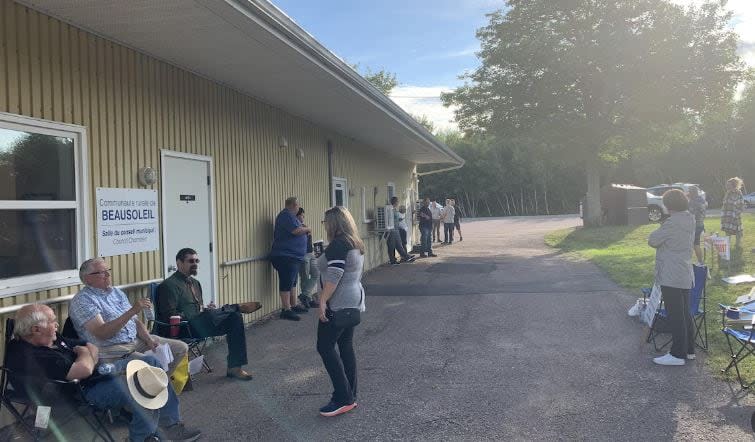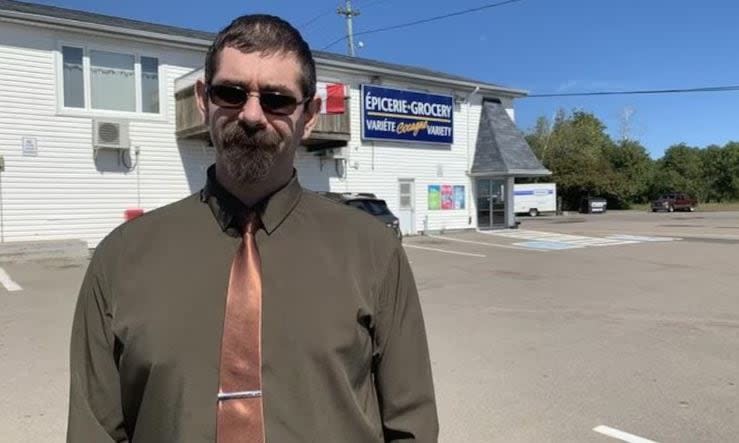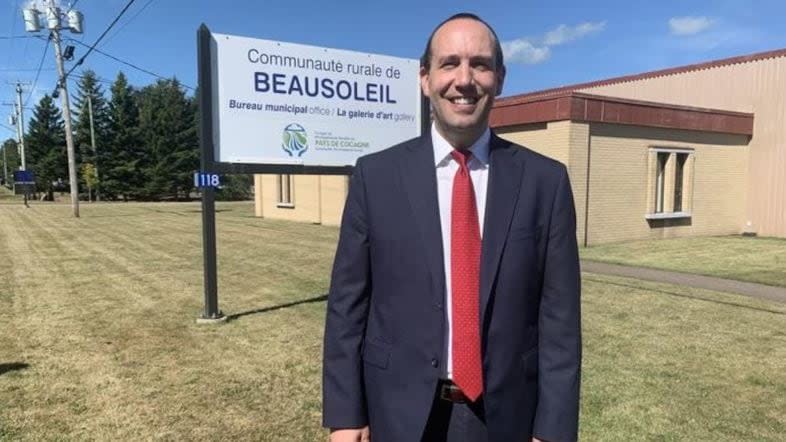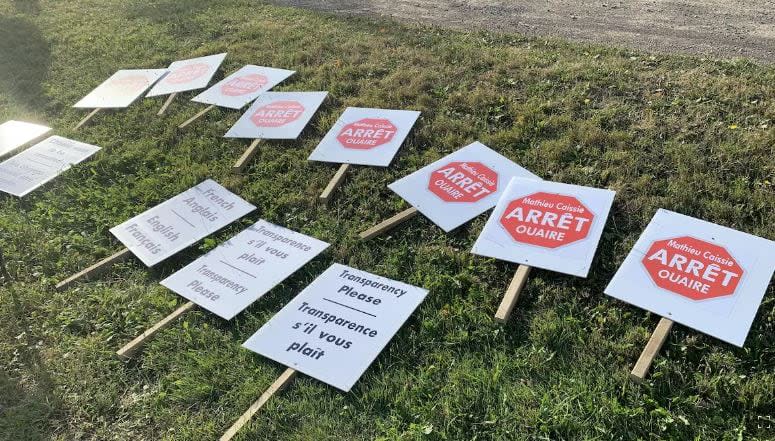The mayor of the recently amalgamated community of Beausoleil, which encompasses Cocagne, has resigned.
Jean Hébert says he doesn’t want to continue working in what has become a divisive and confrontational environment.
People in the community are split over a couple of issues, said Hébert — primarily, a new bylaw requiring a phase-in of bilingual signs that would give French top billing.
“A lot of signs were just in English. … The federation of municipalities was giving money for the signs that would have been bought and the municipality was ready to get involved, too. So … it wouldn’t have been costly, but some people wanted to keep their sign as it was.”
The Francophone Association of the Municipalities of New Brunswick would cover 60 per cent of the cost of new signs to a maximum of $4,000. The municipality of Beausoleil would cover 40 per cent, to a maximum of $2,667.
After two months of public turmoil, Hébert said he couldn’t see a way to move forward on the issue in a positive way.
“I was disappointed because I thought everything would come out all right,” he said.
“I thought I could resolve every problem that comes along. I mean, I’ve been mayor for nine years. But … I couldn’t resolve that problem.”


Residents gathered outside the municipal office of Beausoleil, a rural community north of Shediac in southeastern New Brunswick, to protest the sign bylaw. (Radio-Canada)
Dozens of business owners attended a recent municipal council meeting, and some protesters outside held up signs in the windows.
The demonstrators demanded more transparency or the resignation of the mayor and municipal manager.
“I think we sent a strong and clear message,” said Vincent Cormier, chair of the protest group.
“There were no consultations, that’s the main thing.”


Benoit Poirier opposes the new rule requiring business signs be bilingual, even though his business already has signs that are predominantly in French. (Radio-Canada)
“It was never discussed with business,” said Owen Newcombe of ON Sports.
“I’m not against French or English, but I should have the choice,” he said.
Consultations were held, municipality says says
Even the owner of a local store that already has a predominantly French sign, Benoît Poirier of Cocagne Variety, said he felt left out.
No consultations were held specifically on the bylaw, but the subject of requiring bilingual commercial signs was discussed during three public consultation sessions for a strategic plan last fall, said Mathieu Caissie, Beausoleil’s chief administrative officer, clerk and treasurer.
A survey on the plan was also sent to residents of the rural municipality, he said.
The goal was to make French more visible in the community, said Caissie.
“For a child in the community … seeing their language on the signs is probably one of the most important ways for their culture to shine,” he said.
About 75 per cent the population of Beausoleil is francophone, but 60 per cent of commercial signs are in English, he said.


Beausoleil chief administrative officer Mathieu Caissie says the new rule was meant to make French more visible in the community. (Radio-Canada)
The bylaw also went through the usual procedure at public municipal council meetings. It was introduced June 11 and passed second and third readings July 16, said Hébert.
The vote was 5-4, he said. He didn’t even have to vote on the matter, because typically the mayor only votes to break a tie.
Like the community, councillors have remained divided on the issue, he said.
A longer time period and more communication prior to final approval may have been warranted, Hébert conceded.
Many people are under the impression their business name would have to change, he said, which is not the case.
Only outdoor signs have to be bilingual, with French on top or on the left, he said.
Less controversy in Memramcook
The bylaw doesn’t require businesses to change their names, but requires them to, for example, indicate in French first their opening hours or products offered.
The reaction to the sign bylaw in Beausoleil is unfortunate, said Maxime Bourgeois, mayor of Memramcook.


Beausoleil protested the new rule outside the municipal office on Tuesday evening. (Radio-Canada)
A similar bylaw was passed there in March, except it has a clause for existing signs that only requires compliance whenever they’re being replaced by the business owner.
People in his community didn’t have a problem with it, he said.
Bourgeois feels it’s a good initiative to protect the language and cultural composition of the community.
“It’s not xenophobia,” he said. “It’s cultural preservation.”
The real estate lawyer estimated his own community’s portion of anglophones has increased to about 25 per cent from about 18 per cent in the last few years.
“English isn’t going anywhere, but nowadays if you go to Tim Hortons in places like Bouctouche or Shediac, it’s hard to get service in French,” he said.
The other divisive issue that arose over the summer in Beausoleil and riled people up was the firing of the local fire chief by the chief administrative officer, said Hébert.
“A lot of people, myself included, had a lot of respect for that guy,” he said. “That started another situation.”
Hébert said he asked the municipal association to look into the fire chief’s termination.
He said he was told a lawyer for the association did so and determined that all proper procedures had been followed.
However, Hébert said, neither he nor anyone else on council was given any explanation or has any power to do anything about it because it was a human resource issue.

